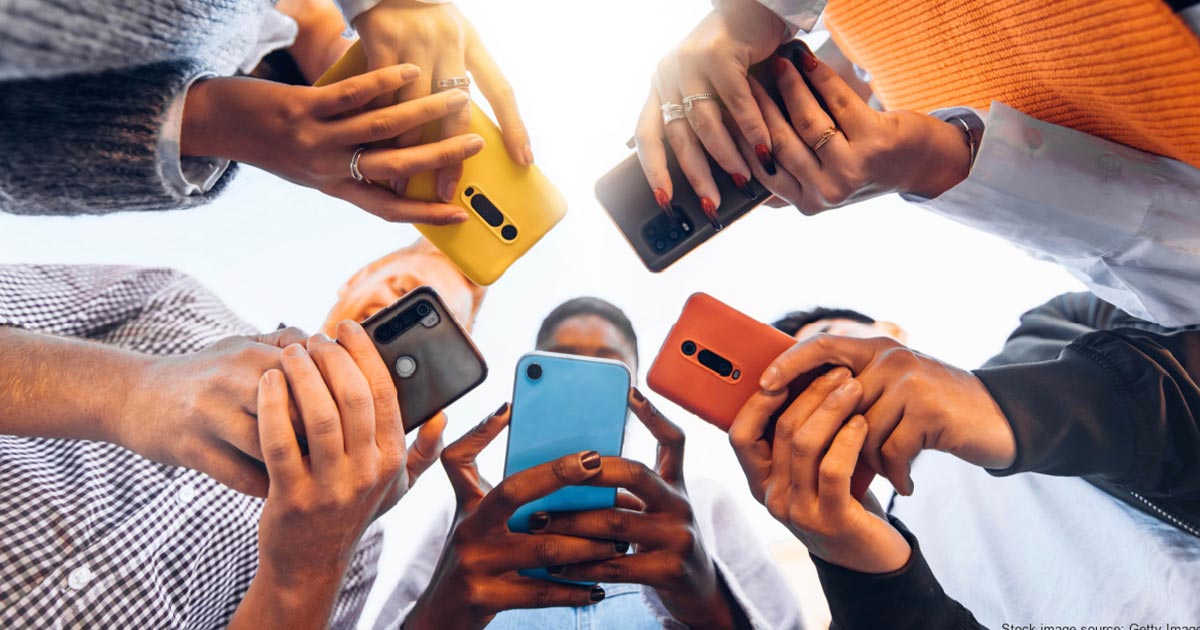Over the past decade, social media has become flooded with posts and images pertaining to weight loss, diet culture and calorie-counting. These messages have had a negative impact on the mental health of so many, especially teens and young adults who are still figuring out their identities.
Research has consistently shown that younger people's social media usage is often tied to higher levels of depression, anxiety, decreased self-esteem and development of negative body image. Recent findings indicate that increased social media use and repeated exposure to dangerous dieting advice and pro-eating disorder messaging can trigger or worsen disordered eating behaviors.
These days, teens are online more than ever.
According to a 2022 study by Common Sense Media, teens spend an average of nearly nine hours each day on the internet, with 34% (or about three hours daily) scrolling social media to connect with friends, internet personalities, celebrities and influencers. A Pew Research Center study published in 2022 found that 94% of teens reported using the internet several times a day or almost constantly.
"Wellness culture" messaging is everywhere.
It's virtually impossible to scroll social media today without seeing ads promoting various "wellness culture" products. Some examples include:
- Weight loss tea and gummies.
- Diet plans.
- Recommendations to try intermittent fasting.
- Apps that promote themselves as psychology-based but are just weight-loss programs in disguise.
Well-intentioned family and friends often post before-and-after photos of their weight loss journeys, their total daily steps taken and calories burned from their fitness trackers. Seeing these posts can create some very negative feelings, especially for teens.
It's human nature to compare ourselves to others and feel pressured to engage in restrictive weight-loss diets, "eat clean" or exercise strenuously, even when we are exhausted. Teens are particularly impressionable; they want to do, eat and measure the same things as their friends.
If you are a parent or loved one of a teen—or if you yourself are struggling with negative feelings about your diet, your body, or your physical activity levels after scrolling through social media—please know that you are not alone.
Tips to help your teen navigate this often-toxic social media landscape.
Monitor and discuss your teen's online activities with them. Pay close attention to and monitor which social media pages and accounts your teen is following. Talk to them openly and directly about any concerning content you might be seeing.
Remind your teen that much of the "wellness culture" on social media is unhealthy.
Social media is designed to promote unrealistic, unattainable and dangerous expectations around weight, appearance and body image. It relies on machine-learning algorithms to serve up content based on past content searched or viewed. So simply searching for a healthy recipe or weight loss article can lead to a feed filled with diet and weight loss content, or worse, messaging from groups promoting eating disorder lifestyles and tips.
Talk to your teen about where and how to find legitimate information.
Very little of the "wellness" content on social media is authentic or scientifically backed. Make sure the advice you or your teen reads or watches comes from people with the proper credentials and experience to advise you. If you and your teen have questions about weight, nutrition or exercise, talk to a professional.
Help your teen understand the comparison culture.
Talk to your teen about the comparison culture and how it is further fostered and promoted on social media. Point out examples of comparison culture when you see it. Have ongoing discussions about how it makes them feel, and what they can do to strengthen their own sense of worth.
Be on the watch for bullies.
Bullying now extends to the cyber realms, and sadly, social media makes teens more accessible to being bullied around weight and appearance. Remember, these bullies can be anyone on social media, not just kids at school.
Use technology to reduce unwanted messaging.
- Change your internet and social media settings to try to minimize weight-loss advertisements.
- Unfollow or block any accounts that make you or your teen feel negative, anxious or guilty about their/your body.
Set a time allowance or take breaks.
If you or your teen are feeling badly after using social media, limit its usage. At times, scheduling a complete break from social media can be incredibly helpful.
Seek professional help.
Pine Rest has clinicians specializing in eating disorder treatment and can help if you or a loved one are struggling. To learn more, call 866.852.4001 or visit pinerest.org/eating-disorder-help.
Written by Anu Allington, LMSW, Pine Rest Christian Mental Health Services.
Courtesy of Pine Rest Christian Mental Health Services.
Photo Courtesy of Pine Rest Christian Mental Health Services.




